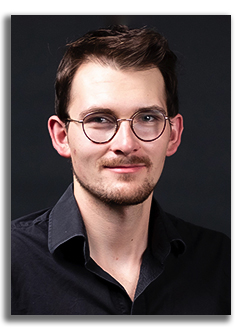
Abstract
The field of chemical sciences has seen significant advancements with the use of data-driven techniques, particularly with large datasets structured in tabular form.
However, collecting data in this format is often challenging in practical chemistry, and text-based records are more commonly used [1]. Using text data in traditional machine-learning approaches is also difficult.
Recent developments in applying large language models (LLMs) to chemistry have shown promise in overcoming this challenge. LLMs can convert unstructured text data into structured form and can even directly solve predictive tasks in chemistry. [2, 3] In my talk, I will present the impressive results of using LLMs, showcasing how they can autonomously utilize tools and leverage structured data and “fuzzy” inductive biases.
To enable the training of a chemical-specific large language model, we have curated a new dataset along with a comprehensive toolset to utilize datasets from knowledge graphs, preprints, and unlabeled molecules. To evaluate frontier models trained on such a dataset, we specifically designed a benchmark to evaluate the chemical knowledge and reasoning abilities. I will present the latest results, demonstrating the potential of LLMs in advancing chemical research. [4]
References:
[1] Jablonka, K. M.; Patiny, L.; Smit, B. Nat. Chem. 2022, 14 (4), 365–376.
[2] Jablonka, K. M; et al. Digital Discovery 2023, 2 (5), 1233–1250.
[3] Jablonka, K. M.; Schwaller, P.; Ortega-Guerrero, A.; Smit, B. Leveraging large language models for predictive chemistry. Nat. Mach. Int. 2024, 6, 161–169.
[4] Mirza, A.; Alampara, N.; Kunchapu, S.; Emoekabu, B.; Krishnan, A.; Wilhelmi, M.; Okereke, M.; Eberhardt, J.; Elahi, A. M.; Greiner, M.; Holick, C. T.; Gupta, T.; Asgari, M.; Glaubitz, C.; Klepsch, L. C.; Köster, Y.; Meyer, J.; Miret, S.; Hoffmann, T.; Kreth, F. A.; Ringleb, M.; Roesner, N.; Schubert, U. S.; Stafast, L. M.; Wonanke, D.; Pieler, M.; Schwaller, P.; Jablonka, K. M. Are Large Language Models Superhuman Chemists? arXiv 2024. https://doi.org/10.48550/ARXIV.2404.01475.
Click here to see all available video seminars.
Click here to go to the SPREE HOMEPAGE.
Brief Bio
Kevin Jablonka is a researcher with over 30 peer-reviewed publications in machine learning for materials
science and digital chemistry. He leads an independent research group at the Helmholtz Institute for Polymers in Energy Applications of the University of Jena and the Helmholtz Center Berlin. Kevin has received numerous awards, such as the Dimitris N. Chorafas
Foundation award for outstanding Ph.D. work. He is an active member of the scientific community, serving as a peer reviewer for over 20 journals and as an area chair for machine learning conferences. Kevin belongs to a new generation of scientists with a broad
skill set, combining expertise in chemistry, materials science, and artificial intelligence. His research focuses on the digitization of chemistry, from developing electronic lab notebook ecosystems to creating toolboxes for digital reticular chemistry. Recently,
Kevin has been at the forefront of applying Large Language Models (LLMs) to chemistry and materials science, co-organizing hackathons and workshops in this rapidly evolving field. Kevin’s research addresses challenges across scales, from atomic-level simulations
to pilot plant operations, pushing the boundaries of AI-accelerated discovery in chemistry and materials science.
